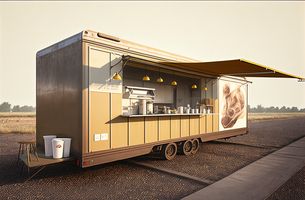What You Need to Know
Starting a food truck business can be an exciting venture, but it requires careful planning and consideration. Whether you’re a chef looking to take your cuisine on the road, an entrepreneur seeking a new business opportunity, or someone passionate about food and customer service, acquiring a food truck involves several important steps. This guide will cover frequently asked questions, essential steps, and tips to ensure you make informed decisions.

Why Choose a Food Truck?
Benefits of a Mobile Culinary Business
Starting a food truck offers flexibility, lower startup costs compared to a brick-and-mortar restaurant, and the ability to reach diverse customer bases. It's a great way to test new markets, showcase culinary creativity, and build a loyal following.
Frequently Asked Questions
Addressing Common Concerns
Q: What are the first steps to starting a food truck business?
A: Begin with thorough market research. Identify your target audience, potential locations, and competitors. Create a solid business plan that includes your concept, menu, budget, and marketing strategy.
Q: How do I choose the right food truck?
A: Consider the size, layout, and equipment needs. Ensure the truck complies with local health and safety regulations. Think about the type of cuisine you’ll be serving and what equipment you’ll need to prepare it.
Q: What permits and licenses are required?
A: Requirements vary by location, but typically you’ll need a business license, health department permit, mobile food vendor permit, and possibly a commissary letter of agreement. Check with local authorities for specific requirements.
Q: How do I finance a food truck?
A: Options include personal savings, bank loans, crowdfunding, and investors. Be prepared with a detailed business plan and financial projections to secure funding.
Q: What should I consider when designing the interior of the truck?
A: Focus on workflow efficiency. Ensure there is enough space for food prep, cooking, and storage. Consider the placement of equipment to minimize movement and improve safety.
Steps to Acquiring a Food Truck From Planning to Purchase

Ensuring the Right Fit
How to Ensure Your Food Truck Meets Your Needs
Dimensions: Measure the truck’s length, width, and height. Ensure it fits within the local regulations and parking requirements.
Equipment Space: Make a list of all the equipment you need and their dimensions. Ensure there’s enough space for everything without overcrowding.
Workflow Efficiency: Plan the layout to allow easy movement between prep, cooking, and serving areas. Efficiency is key to a successful operation.
Customer Interaction: Design the serving window area for optimal customer interaction. Ensure it's at a comfortable height and accessible.

